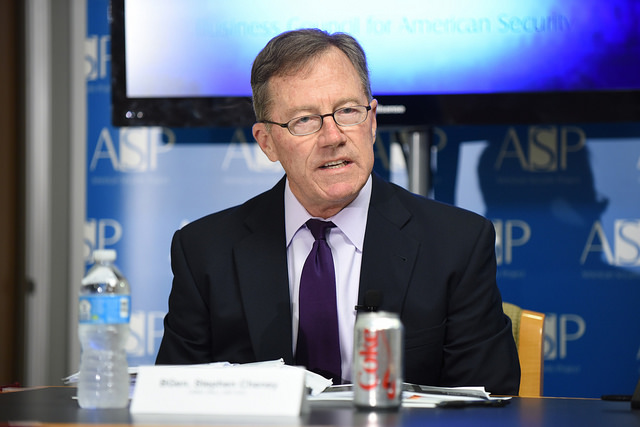
ASP CEO Stephen Cheney Featured in WUCF TV’s Global Perspectives
On Sunday, July 16th, ASP’s CEO Brigadier General Stephen Cheney, USMC (Ret.) was featured on the “Global Perspectives” program of PBS affiliate WUCF TV. During the interview, he discussed a wide range of national security issues, the threats they pose to the United States, and policies that can reduce global security threats. Major topics that were covered include the global impacts of climate change, Russian incursions into Ukraine, and nuclear security on the Korean Peninsula.
General Cheney focused heavily on the threats that are posed by climate change and the effects that increased global temperatures will have on the United States and its allies. Countries in the global north, including the United States, should prepare for the northern migration of people, animals, and insects as temperatures rise. The melting of global ice caps and rising sea levels were also highlighted in the context of potential climate refugees from vulnerable areas of the world. These refugees may flee to neighboring countries and become targets for radicalization.
The threat to nuclear security posed by the North Korean nuclear program and the need to remain diplomatic in seeking solutions was emphasized during the interview. General Cheney stated that the best way to manage the nuclear threat is through pressuring China to help prevent the development of nuclear weapons. He suggested economic sanctions on the regime’s financial support in China. He noted the threat that North Korean military assets near the DMZ pose to Seoul, South Korea as a major reason why a negotiated solution is preferable to military action.
Finally, the interview turned to Russia and its conflicts with Ukraine. General Cheney believes that the United States’ response to Russia’s annexation of Crimea was too soft. He thinks that the way to combat aggression by Russia is through heavy economic sanctions and diplomatic pressures to protect natural security interests while avoiding military conflict.
The interview can be viewed in its entirety here.





